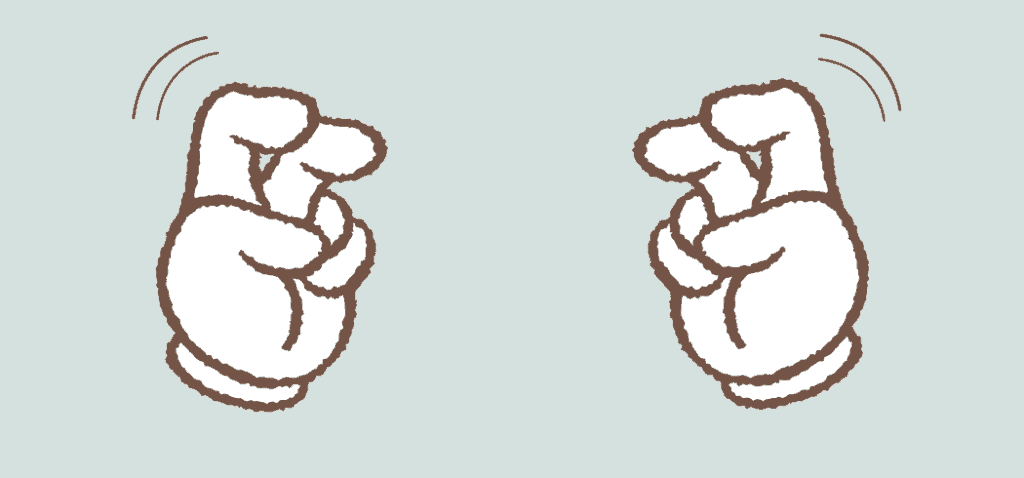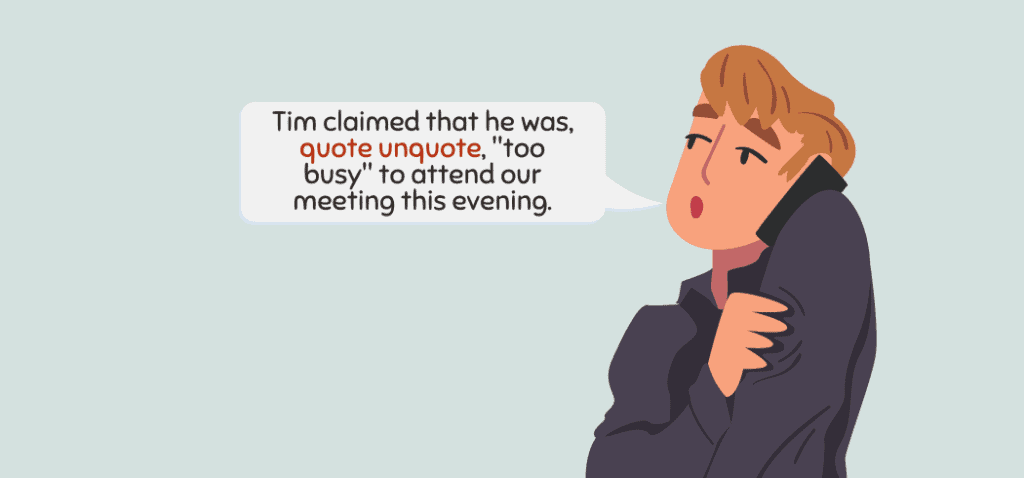The phrase “quote unquote” is one that we’ve all heard before. It’s used in conversation and writing all the time. But what does it actually mean? I created this quick grammar guide to explain the meaning of “quote unquote,” show you its proper usage, and share some examples of how you can use it in a sentence.
Quote Unquote Meaning

The purpose of the phrase “quote unquote” is to show that certain words in a sentence or paragraph aren’t the speaker’s or writer’s own words; you’re just relaying what they said. The phrase is often used to put some emphasis on something or to clarify that the words are being borrowed from another source.
- David’s new apartment is a total dive. (Implies that you’re being judgmental of David’s new place.)
- David’s new apartment is, quote unquote, “a total dive.” (This shows that it’s not your opinion but one that David or someone else shared with you.)
Is It Quote Unquote or Quote on Quote?
The correct phrase to use is “quote unquote.” “Quote on quote” is a common mistake I often see people make when using this phrase in writing. But it’s not considered the correct way to use it, so avoid it altogether.
Should Quote Unquote Be Hyphenated?
The phrase “quote unquote” doesn’t need a hyphen but can be used with one, and you’d be correct either way.
- David said he’d, quote unquote, “make dinner so I could take a bath.”
- David said he’d, quote-unquote, “make dinner so I could take a bath.”
Plus, you can use it before or after the words or phrases you’re quoting.
- My mother, quote unquote, “is coming to stay for two weeks.”
- My mother is “coming to stay for two weeks,” quote unquote.
You can also break it up and put the word or phrase you’re quoting between the words quote and unquote.
- She wants to grow a garden and, quote, “build a nursery,” unquote.
How to Use Quote Unquote in a Sentence

Take a look at these quote unquote examples I put into sentences to give a broader sense of how you can use the term. Always surround the words quote unquote with punctuation, and also contain the quote itself with double quotation marks.
- Danielle told me that this guy was, quote unquote, “a real piece of work.”
- After taking the time to do a quick search, the article was, quote unquote, “fake news.”
- My husband was, quote unquote, “working from home,” but we all know he was just playing video games.
- The company’s policy was, quote unquote, “to always put the customer first,” but I don’t see it.
- According to the key witness, the suspect was, quote unquote, “acting suspiciously,” so they brought him in for questioning.
- My boss was, quote unquote, “very disappointed” with the team’s performance and asked me to help retrain the staff.
- According to the article I just read, the politician was, quote unquote, “flip-flopping” on his stance on abortion.
- I described that new romance movie as, quote unquote, “a real tearjerker,” so now I have to watch it.
- The tech expert I spoke to told me the new technology was, quote unquote, “a game-changer,” and we’re all going to be using it within a year.
- Tim claimed that he was, quote unquote, “too busy” to attend our meeting this evening.
Bottom Line
So, remember to use “quote unquote” to let others know that the words spoken or written are not your own but borrowed from another source. You don’t need to bother hyphenating it; you can use it in formal and informal situations.
